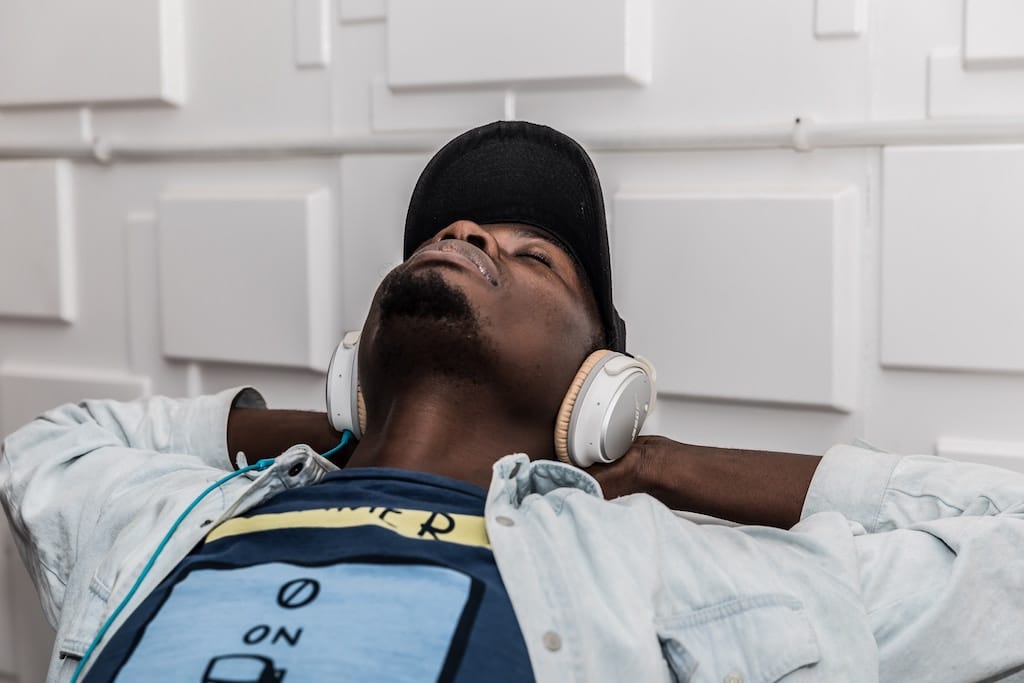Skift Take
Meditation is now the fastest-growing wellness activity in the United States. Because it’s a free (or mostly free) practice, brands will probably need to get creative if they want to capitalize on the trend — especially since the app category is already saturated.
 The Skift Wellness newsletter is our weekly dispatch focused on what’s happening in wellness from a global business standpoint. Skift Wellness lives where wellness meets commerce, mindfulness meets technology, the yoga studio meets the boardroom, and health meets business.
The Skift Wellness newsletter is our weekly dispatch focused on what’s happening in wellness from a global business standpoint. Skift Wellness lives where wellness meets commerce, mindfulness meets technology, the yoga studio meets the boardroom, and health meets business.
It wasn’t exactly surprising to hear that meditation’s popularity is rapidly rising, according to a recent report from the Centers for Disease Control and Prevention (CDC). Yes, meditation has its successful supporters, ranging from billionaire investors like Ray Dalio to athletes like LeBron James. It’s also free, which makes it easy for anyone to take part –– this is especially important as leaders in the wellness industry aim to foster more inclusiveness.
That doesn’t mean companies haven’t tried to monetize meditation. Along with apps like Headspace and Inscape, brick-and-mortar studios including MNDFL, The DEN Meditation, and Meditation Bar have popped up, all seeking to help new fans stay zen — often at a price.
If brands are smart in 2019, they’ll find new ways to incorporate mindfulness into their products, such as by partnering with leading apps (like a number of airlines have recently done). And there’s no doubt meditation startups will continue to find Silicon Valley funding. Thus, we’ll likely see more growth of the meditation space in 2019.
Another trend expected for the new year: a continued surge in cauliflower. Brands are looking for new ways to use the vegetable in crackers, chips, and puffs –– going way beyond cauliflower rice –– as an alternative to wheat and other grains. This will surely be good news for gluten-free fans everywhere.
Legacy companies will also continue to snap up wellness brands to grab a piece of the pie. Kraft Heinz, for example, plans to purchase the paleo dressing and mayonnaise brand Primal Kitchen in early 2019. You can expect more of these acquisitions in the coming year as more companies look to take a bite — or sip — out of the burgeoning wellness industry (sesame milk, anyone?).
For feedback or news tips, reach out via email at [email protected] or tweet me @lesliebarrie.
— Leslie Barrie, Wellness Editor
Mind & Body
Meditation Takes the Top Spot as the Fastest-Growing Wellness Activity: Yes, yoga may win the popularity contest as the No. 1 wellness activity in the U.S. But according to a new CDC report, meditation is no slouch. The CDC research shows the percentage of Americans who meditate grew to 14.2 percent in 2017, up from 4.1 percent in 2012. The big question: Will companies find new ways to capitalize on all this growth in 2019?
Why Everyone Wants to Hop on the Wellness Bandwagon: It seems like no matter the industry –– beauty, fitness, medical, food and drink –– businesses are tweaking their branding and offerings to take advantage of the wellness boom. We’ve seen a number of legacy companies rebrand in 2018 (for example, Weight Watchers is now WW with its new “Wellness That Works” tagline). The industry is now estimated at $4.2 trillion and growing, so we’ll likely only see more pivots toward wellness in 2019.
Food & Drink
Cauliflower Is Going to See an Even Bigger Boom in 2019: You might have thought the cruciferous vegetable already hit its peak of popularity. After all, sales for packaged cauliflower products grew by 71 percent last year, according to Nielsen. But it seems like there’s no stopping sales of this “it” veggie –– especially now as brands like From the Ground Up, Cali’Flour Foods, and Vegan Rob’s use cauliflower in their crackers, chips, and puffs as an alternative to grain flour.
Kraft Heinz to Go Paleo With the Acquisition of Primal Kitchen: With so many companies converting to wellness –– or at least dabbling in the concept –– Kraft Heinz made a smart move in agreeing to buy the niche condiment brand Primal Kitchen for $200 million. Its purchase may help fend off boutique competitors like Sir Kensington’s, but Kraft Heinz’s reputation for cost-cutting raises a big question: Will the mega-brand compromise on Primal Kitchen’s quality and lose fans?
Sesame Milk May Become the Next Big Non-Dairy Beverage: Everyone is talking about the oat milk frenzy expected in 2019, especially as legacy companies like Quaker look to give the original, Swedish brand Oatly a run for its money. But is there already a new non-dairy milk competitor in the midst? The sesame milk brand Hope and Sesame, whose product has a nutty flavor and a similar amount of protein as regular milk, hopes so. It could be the next big player in the plant-based space.
Fitness
Thinking Beyond the Bike, SoulCycle Expands Its Content Team: In an effort to keep the brand buzzy (and prevent its main competitor Peloton from surging past), SoulCycle has created a sizable media division, mainly to reach fans on Instagram. The 20-person group also creates concert experiences, which are (of course) shared on the social platform. Sure, it’s a way to get sponsors and find new customers –– but it’s not super clear if the extra hype and revenue opportunities will give it an edge over Peloton.
Technology
Freeletics App Raises $45 Million and Aims for the U.S. Market: The Munich-based, AI-powered fitness app is all the rage in Europe, so there’s no reason why Freeletics won’t be in the U.S. –– or at least that’s what investors like FitLab and Causeway Media Partners think. The fit-tech company hopes to use the cash injection to increase its presence in America. Judging by the fact that Freeletics’ user base already grew in the U.S. by 120 percent in the last six months, that expansion shouldn’t be too difficult.
Athleisure
Lululemon Tests a Subscription Model to Foster Community and Boost Sales: Think of it like Amazon Prime –– only for yoga pants and zen perks. The athleisure brand is testing out a $96-per-year membership program to further strengthen its cult-like following, plus find new ways for loyalists to spend more. Members get a pair of yoga pants (worth about the price of the membership), free shipping, and a free class every month at a local studio. Based on the program’s early success in Canada, it’s highly likely it will see a strong response elsewhere.
Skift Wellness Editor Leslie Barrie [[email protected]] curates the Skift Wellness newsletter. Skift emails the newsletter every Thursday.
The Daily Newsletter
Our daily coverage of the global travel industry. Written by editors and analysts from across Skift’s brands.
Have a confidential tip for Skift? Get in touch
Tags: Skift Wellness, wellness
Photo credit: A man is shown relaxing with headphones on. Meditation is now the fastest-growing wellness activity in the U.S., according to the CDC. @oviidaniel / Unsplash

